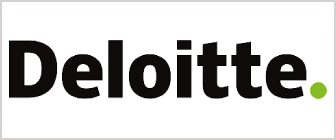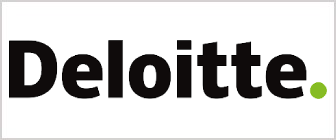What is the most significant change to your region/jurisdiction's indirect tax legislation in the past 12 months?
Anbreen: The most significant change has been the focus on digitalization for both tax authorities and taxpayers. In particular, the past three months have defined the past 12 months in that the force majeure COVID-19 circumstances mean that the approach to post-COVID-19 planning will have a renewed focus on digitalization and "new approaches" to technological advancement for taxation.
Liesbet: It is difficult to name one change; rather, we have faced a "trend" whereby more and more regulatory initiatives have required the introduction of indirect tax controls in the actual business process. In this framework, we can consider, for example, the "EU Quick Fixes" that require the validation of customer Value Added Tax (VAT) numbers at the moment of supply, or Poland's "White List" rule that requires bank account numbers of customers to be checked upon payment.
While real time reporting, Standard Audit File for Tax (SAF-T), and similar types of requirements are being implemented, getting one's data right in the first time was already an important point of attention for businesses. The above-described requirements put an additional layer of control within businesses.
In other words, performing checks only for VAT compliance purposes will no longer suffice.
How do you anticipate that change impacting your work and the market moving forwards?
Anbreen: I think as tax advisers, we must necessarily be more strategic and long-term in our thinking, and also embrace new skillsets via automation/technology, alliances, and teaming across geographies. We also need to be mindful of the flip side technology issues, such as cyber risk and data protection.
Liesbet: Companies will need to look at the full VAT lifecycle to achieve compliance. VAT is a transactional tax that is heavily impacted by the decisions/quality controls of different stakeholders within a business (procurement, accounts payable/receivable, master data teams, supply chain, etc.). Therefore, having a clear "tax control framework" – a business-fit indirect tax operating model fully supported by the required level of automation – will be important for businesses.
Addressing the above challenges is no longer an option; rather, it's a requirement induced by regulatory changes. In this context, we see multinationals addressing these challenges by redesigning and transforming their VAT operations, offering possibilities for Deloitte to assist with not only the "Imagine" and "Deliver" phases, but also the "Run" phase of these new models. We expect businesses and service providers to become strategic partners in the delivery of indirect tax.
What impact do you see the COVID-19 pandemic having on your work directly and on the wider tax environment, in both the short and long term?
Anbreen: As already mentioned, I think that COVID-19 will require a sharper focus on an outlook which is more about "digital taxation". Importantly we will also need to envision and plan for extreme scenarios and enhance our capabilities to develop solutions which build in flexibility and alternatives or options for what might not be foreseen. I also consider that vulnerability, and perhaps different working patterns, will impact our work. For example, less travel, and different ways or styles of working.
Liesbet: Cash has always been king. In these times especially, businesses seek to confirm that indirect tax cash and cash flow are controlled. This means not only a focus on the implementation of indirect tax cash/cash flow areas of improvement (e.g., VAT payment extension, focus on unlocked VAT), but also a better and increased reporting/management of indirect tax cash/cash flow going forward.
Both have been an important point of attention to our clients, giving us the opportunity to assist with customer fit services (e.g., building required reporting, asking for VAT payment/filing deadline extensions, refund procedures, etc.).
In addition, the increased need to control costs and address talent challenges (e.g., reduced workforce, working from home, etc.) due to the COVID-19 pandemic have also made companies (re)consider their current operating model for indirect tax with an eye on outsourcing and operating opportunities.
Given the likely long-term implications of COVID-19 on things like remote working and digital retail, how do you see tax technology developing to accommodate this new reality and where do you think the next area of focus might be?
Anbreen: My strong view is that tax technology is central to accommodating this "new reality". As human beings, we are highly adaptable and COVID-19 has shown that we can adapt. However, what is crucial is to have robust technology platforms and training ourselves on new digital platforms including disruptive technologies (e.g., artificial intelligence; robotics). I think the next area of focus will be about building more resilience within businesses, combined with technology.
Liesbet: I understand that people's experience in their day-to-day life with technology also influences the way they look at technology requirements from a business point of view. While people are working from home, where their professional and personal time co-exist, I expect that criteria such as speed, user friendliness, and customized insights have become crucial to them. This is what people experience with personalised news feeds, for example.
Assuring that a customer's talent will have this experience with Deloitte and the use of technology will become crucial. For example, SAP, with S4Hana, has an important focus on both speed and user experience.
What potential other legislative changes are on the horizon that you think will have a big impact on your region/jurisdiction?
Anbreen: Working in the Middle East and across the Gulf Corporation Countries (GCC), taxation is developing and fast evolving – for example, we recently saw Saudi Arabia increase the VAT rate from 5 percent to 15 percent. Therefore, the introduction of taxes in GCC countries which are yet to fully implement tax, as well as implementing the expansion of taxes within GCC countries, and developments in electronic transactions are likely to trigger the main legislative changes.
Liesbet: Although COVID-19 did put some of the developments on hold, authorities are expected to increase the implementation of on-demand SAF-T requirements (e.g., Romania already announced its intention to do so).
What are the potential outcomes that might occur if those changes are implemented?
Anbreen: The outcomes of taxation are positive, especially for the GCC/Middle East region, allowing more diversification, and funding for public, developmental and welfare programmes. These changes will also mean that the economic outlook can be more stabilised.
Liesbet: SAF-T will, without a doubt, increase the need of having the right data the first time. On-demand SAF-T not only covers VAT-related data, but also data such as general ledgers, warehouse, payments, etc. The requirement to look at data holistically across all taxes becomes essential in this context.
The more authorities implement these types of SAF-T requirements, the more businesses will need to focus on cross-tax data models. If companies are moving towards a new ERP system such as S4Hana, this requirement will be high on the business' agenda. Getting the data right and controlled is the highest priority. The technology required to support the transmission of data to local tax authorities is also important, but easier to address in practice.
Do you think that change will have a positive effect on both your practice and the wider regional/jurisdictional market?
Anbreen: In my view, change is an inevitable part of life – whether viewed from a personal, career, commercial or economic perspective. It is the way one deals and adapts to change that may or may not make the effect or result a positive one. My viewpoint is that change should always be looked at positively and this brings about optimism and the confidence to grow and invest in better opportunities and new markets.
Liesbet: Yes. Over the past few years, these types of changes have opened a "'new" market for indirect tax advisers. Together with our clients, we translate the indirect tax treatment of their operations into data/process/technology needs for indirect tax. This has forced us to think in a practical, business-minded way that combines our indirect tax expertise with our technology and process capabilities. These types of business opportunities will only grow in the coming years, allowing us to assist our clients with finding the right operating models tailored to their needs.
What legislative changes would you like to see be implemented that you think would have the most positive effect on your practice and the wider regional/jurisdictional market?
Anbreen: I think that governments should consider providing more flexibility in the process of writing and bringing in new laws and amending existing laws. I say this because the emergency tax measures that had to be brought in during the COVID-19 outbreak showed that "quick fixes" are necessary to aid society and the economy in times of emergency. It would be good to see this at the GCC level.
Liesbet: As explained above, authorities are focusing on data and require controls to be implemented into business processes. That said, they should keep the business reality in mind – depending on the size of the operations, old ERP systems may need to be replaced, and companies have to address cost constraints and sometime face the challenge of having all the correct steps addressed for VAT purposes.
Indeed, one can appreciate the evolution of the analytical capabilities of tax authorities that can now reveal potential errors more easily. However, this should not lead to a situation of automatically imposing high penalties or interest. Business and indirect tax departments are often working with the right intentions and plans, but because of a one-time process/technology failure, incorrect reporting of indirect taxes may occur. In their legislative frameworks and audit behaviours, tax authorities should find a balance between "punishing" and "correcting." An open dialogue, and more programs such as the so-called "Certified Taxable Person," may help facilitate this.
Do you think something like that is likely to be implemented in the near future?
Anbreen: Frankly, I am not certain. However, I know it is something on the radar of governments across the globe and so it will be interesting to track.
Liesbet: I hope so. Otherwise, the cost of compliance (and as a result, the cost of doing business) may increase substantially.
What have been the biggest developments in tax technology and where do you think the next area of focus might be?
Anbreen: I think that alternative technology platforms for taxation – for example, mobile, apps, and other digitized products such as smart watches and smart notepads, etc. – are significant, allowing a full range of options for tax authorities and taxpayers to be able to collect and pay taxes in more flexible ways.
Liesbet: "New" technologies (although no longer that new) such as blockchain, the Internet of Things (IoT), etc., offer a huge opportunity in the field of indirect tax. Think of the proof of transport, whereby the movement of goods is on a blockchain. Think of the initiation of an order/self-bill with required VAT treatments if, via the IoT, it shows inventory is too low. As indirect tax practitioners, we need to remain very close to businesses in order to understand their plans in these domains and to leverage the benefits for indirect tax.
Please find Deloitte's Global Profile here: https://www.itrworldtax.com/Firm/Deloitte/Profile/89#profile



